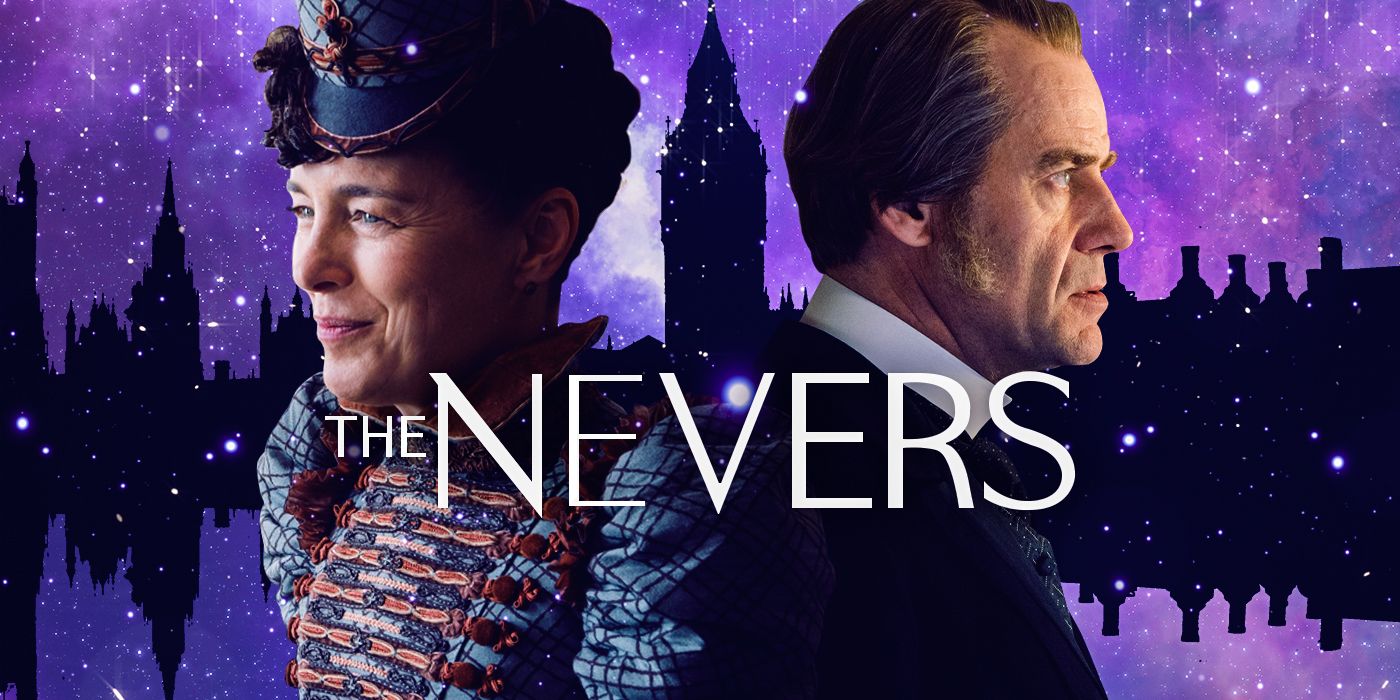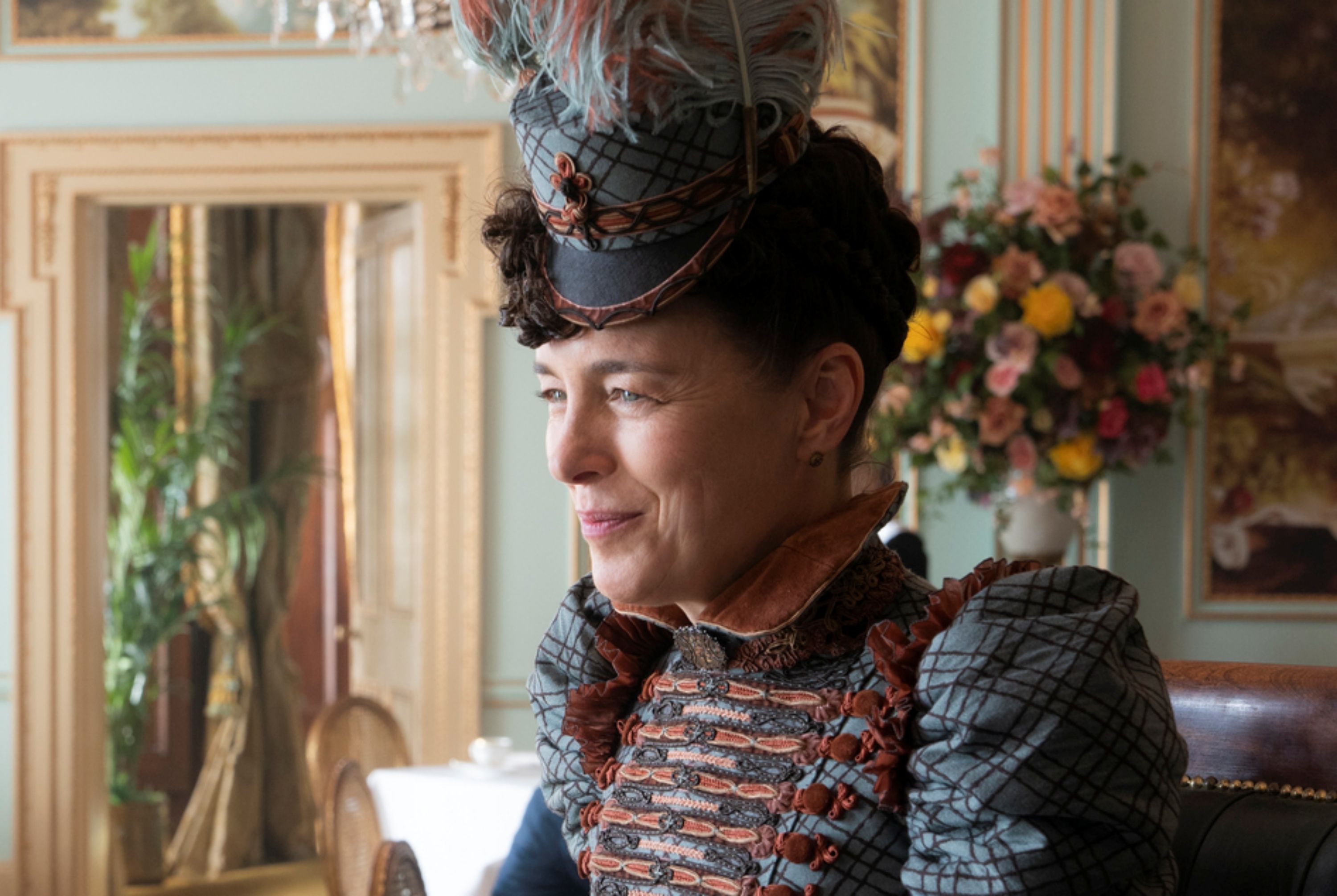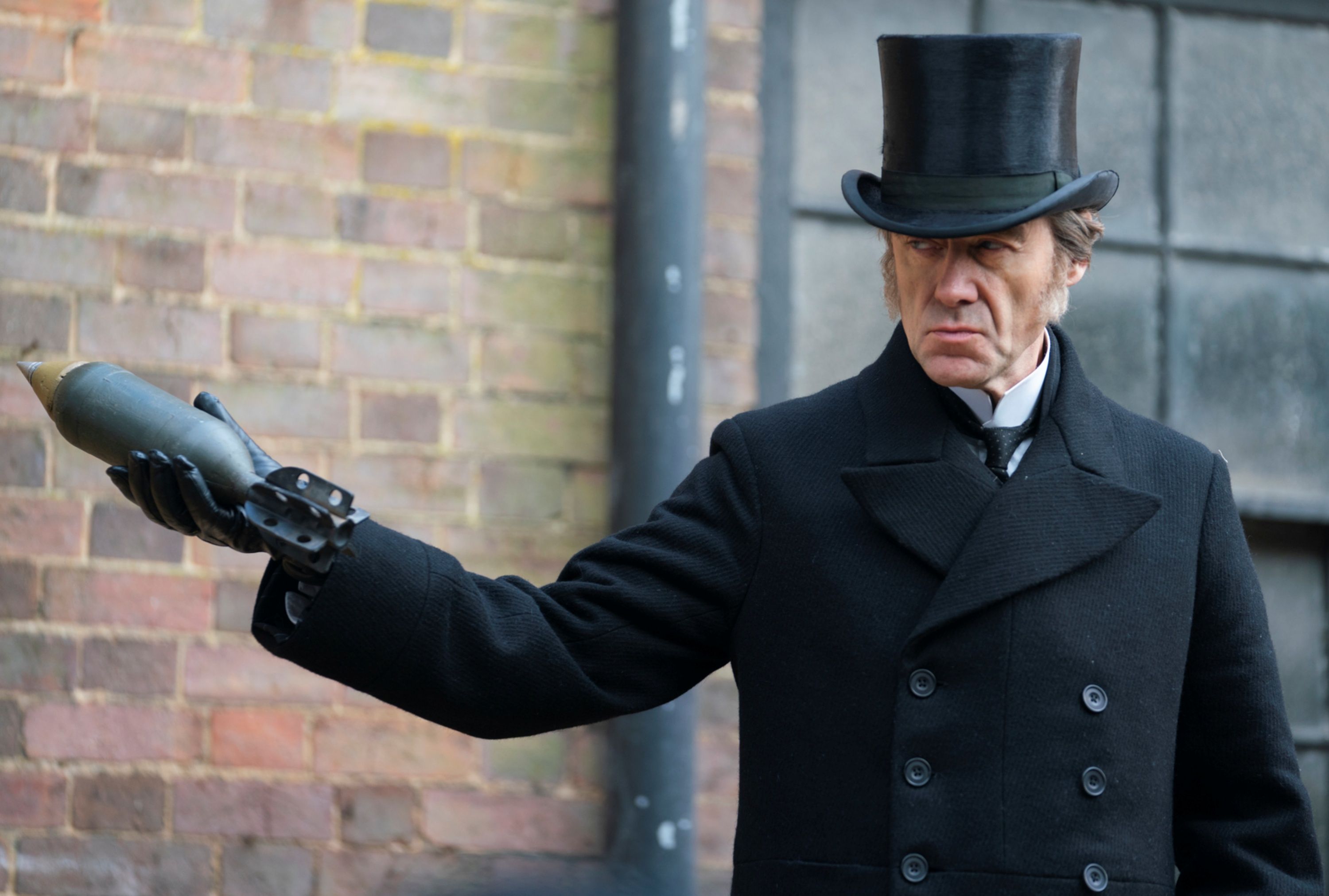The HBO sci-fi/adventure series The Nevers is set in 1890s Victorian London after a supernatural event has mysteriously given certain people, most of whom happen to be women, various unusual abilities. At its core is the friendship between Amalia True (Laura Donnelly), a resourceful widow who never shies away from a fight, and Penance Adair (Ann Skelly), a brilliant inventor whose creations are often far ahead of their time, as the two women attempt to find and protect the gifted from those who which to annihilate them.
During a virtual junket for the new show, co-stars Olivia Williams (who plays Lavinia Bidlow, the wealthy woman who’s funding the orphanage where Amalia is gathering the Touched) and Pip Torrens (who plays Lord Gilbert Massen, a high-ranking government official who’s suspicious of what the Touched represent) spoke to Collider about what drew them to this project, how they feel about their characters’ motives, who and what they’re really protecting, and the incredible detail in the wardrobe and sets.
Collider: When you’re looking at a project that has all of these story threads and characters, and all of these things to explore in different genres, what was it that excited you about it? How much were you told about what it would be?
OLIVIA WILLIAMS: I shouldn’t answer for all of us, but actors have that single-minded view of the world where you’re like, “What about my character? What’s my character going to do? How am I going to spend my days?” The root for my character was fascinating. I’d never played anyone quite like her. I’d never played such an extreme disability, but without any real idea of the psychological roots of her behavior. That was a tremendous thing to explore. I couldn’t let go of the chance to play someone as complicated as Lavinia Bidlow.
PIP TORRENS: I feel the same. There’s so much in there. You get a sense of that fertility and the multifarious aspects to everything. Everybody you meet has something going on. In some cases, it’s clear, and in some cases, perhaps with characters like mine, it’s a bit more buttoned up on the face of it. It’s not quite so clear, but there’s some good stuff in there. You’re drawn in. You want to know. If you want to keep turning the pages of the script, you’re pretty sure that people will want to tune in and see all of the different episodes. It was a thrilling read, and that’s quite unusual.
WILLIAMS: When Penance came up with another invention, you wanted to see that realized. And then, when we got to the set at the studio in West London and you saw the workshop where they were making the car and they’re making an arm that has a gun, it’s a kid’s dream. It’s like the science museum, but it’s a place you’re actually allowed to play.
There are so many characters in this and they’re all so interesting that it almost feels like you need to have a chart on a wall to keep track.
WILLIAMS: It takes a great collection of minds and that’s fortunately what we have. We have a room full of people whose job it is to write all of this on the wall. If it was me, it would be a real mess.
TORRENS: There really are those charts. One of the extraordinary things about first coming into the building, at the headquarters in London, is that it hits you. It’s happened to me on a smaller scale, many times. There have been people working on this for years and it hits you, most generally, when you walk past the beautiful sketches or scouting photographs that had been taken of possible locations and what might be done with them, and you start to see the outlines of the world that you’re going to inhabit. It’s so exciting. And that was more so on this than almost anything else I’ve done.
Olivia, when it comes to Lavinia, clearly there are some things going on with her. She doesn’t know what’s going on with her brother, but she’s involved with the seemingly deranged Dr. Edmund Hague. What’s up with her?
WILLIAMS: Yeah. On the face of it, she’s in a very female pursuit of financing a women’s refuge for the Touched and the socially outcast, but somewhere in a deep mine underneath, where we’re not quite sure, she has some strange breathing creature trapped and the evil doctor is doing some form of experiment on it. There is some dodgy relationship going on with the doctor. The way that I characterize it is to say that we just don’t know what’s going on under Lavinia’s blanket. I have these beautiful costumes, but over my lap, over every single costume, I have a blanket and we don’t know what’s going on under that.
TORRENS: Similarly, we don’t know what’s going on in Massen’s basement, but it’s something very nasty. The housekeeper knows to move the telephone engineer away, but one thing’s for certain, those aren’t dogs in there. That drives him in some way that we have yet to find out about.
How do you feel about your character’s motives and what they’re doing?
TORRENS: We learn that Massen was a father, fairly early on. He had a young wife, but he’s also a general. I think he feels himself to be a general in charge of a counsel who will tell the parliamentary powers that be what to do. He’s come to see this phenomenon as something that can only be answered by a military operation on an enemy that doesn’t fight the way you want them to fight. He is having to expand his repertoire of responses to this, and in fact, he’s having to become proactive and an agent provocateur himself, which is something that we’ve seen regimes do, all over the world. It’s fascinating the way it ties into other reference points in history and cultural development and things like that.
WILLIAMS: For Lavinia, it begins from quite a small-minded place for her. She’s trying to correct otherness and fears that otherness is, in some way, immoral. She opens a can of worms that goes beyond her comprehension and ends up financing something far more sinister than she ever had any ideas about. It’s that misguided belief that you need to correct otherness. There is a good intention in her, but it’s entirely founded on a wrong-thinking principle.
It seems like that really comes back to the comment about how this was all designed to see the parts and not the whole. They don’t necessarily quite understand what they’re doing because they don’t know what the full picture is.
WILLIAMS: And there’s a huge planet climate change parallel in there. There may be a greater good here that these people are unwittingly destroying. There might be a force for trying to stop us destroying ourselves that we are determined to dismantle, every time it tries to help us.
And they’re personally touched by what’s going on, even if they aren’t aware of that fact.
WILLIAMS: Yes, Augie is a lot more complicated than he, at first, appears. Whether Lavinia is protecting Augie from the world or protecting the world from Augie becomes a very major question.
TORRENS: Similarly, I think Massen thinks he’s protecting the world from something, but perhaps he’s protecting it from himself, or the part of himself that he can’t bear to address, which is the part that’s down in the basement. Ultimately, it’s a very compassionate story. No matter what setbacks the Touched have seen, they intrinsically band together and understand. Penance keeping Amalia back from just simply duffing people up on a mundane basis is a smaller example of the only way out of this, which is some form of truth and reconciliation, or just some form of understanding. I think it’s a very modern message that fantastically universal and very compassionate. It has to be an exercise in compassion and understanding.
The wardrobe says so much about all of these characters because it really gives you a sense of who they are and where they come from. What was it like to really see the full looks for your character? Does it really help you feel and understand who they are?
WILLIAMS: You’ve raised something that is very close to my heart. I don’t very often demand more camera time because I think that you can get a reputation for that sort of thing and it’s so narcissistic. But I had one costume that was so astounding that I just said to the director, “Look, I don’t mind if the camera never reaches my face, but you really have to catch the bead work and detail and structure that has gone into creating this astounding piece of work. Michele Clapton is almost sculptural in her work. She brings out these things with a texture that have been made. There was a woman who was a lace maker. She made the lace to go around the neck. She didn’t find it in old market. She designed it and made it. When that degree of care has gone in, it creates a world that is extraordinary. And then, just in terms of the restriction of wearing a corset and having, effectively, a neck brace on, it’s been invaluable to me to get the constriction of the time and the constriction of the disability for the role.
Is it the same kind of detail on the sets?
TORRENS: Very much so. It’s not just the construction of the costumes, the construction of the sets is amazing. It was interesting, downsizing the production as a result of lockdown and moving out to Langley Berry and finding this house with this collection of other buildings is where I spend most of my time, rather than in the big stately homes. Because all of these different sets and constructed areas were so close to each other, it brought home the absolute skill and dedication of the construction workers, the set designers, the art department, and everyone. It was absolutely spellbinding and beautiful. You could look in every corner and find the details. It was fascinating.
WILLIAMS: As practitioners in theater, film and television, with the lockdown and the loss of theater and the loss of small scale production, you have to be as rich and generous as HBO to just cover the COVID measures that you need to put on a show. It’s these people who, if you say, “I want you to make me a prototype car,” would know where to start with a blowtorch and a piece of sheet metal. These are the skills of the crafts that are lost when production goes down, so it’s incredibly important.
TORRENS: And that car works and is about three years ahead of what was officially being done at the time, as far as cars. It’s so cleverly observed and there’s never a moment where you feel something is absolutely out of keeping with the times.
The Nevers airs on HBO on Sundays.



